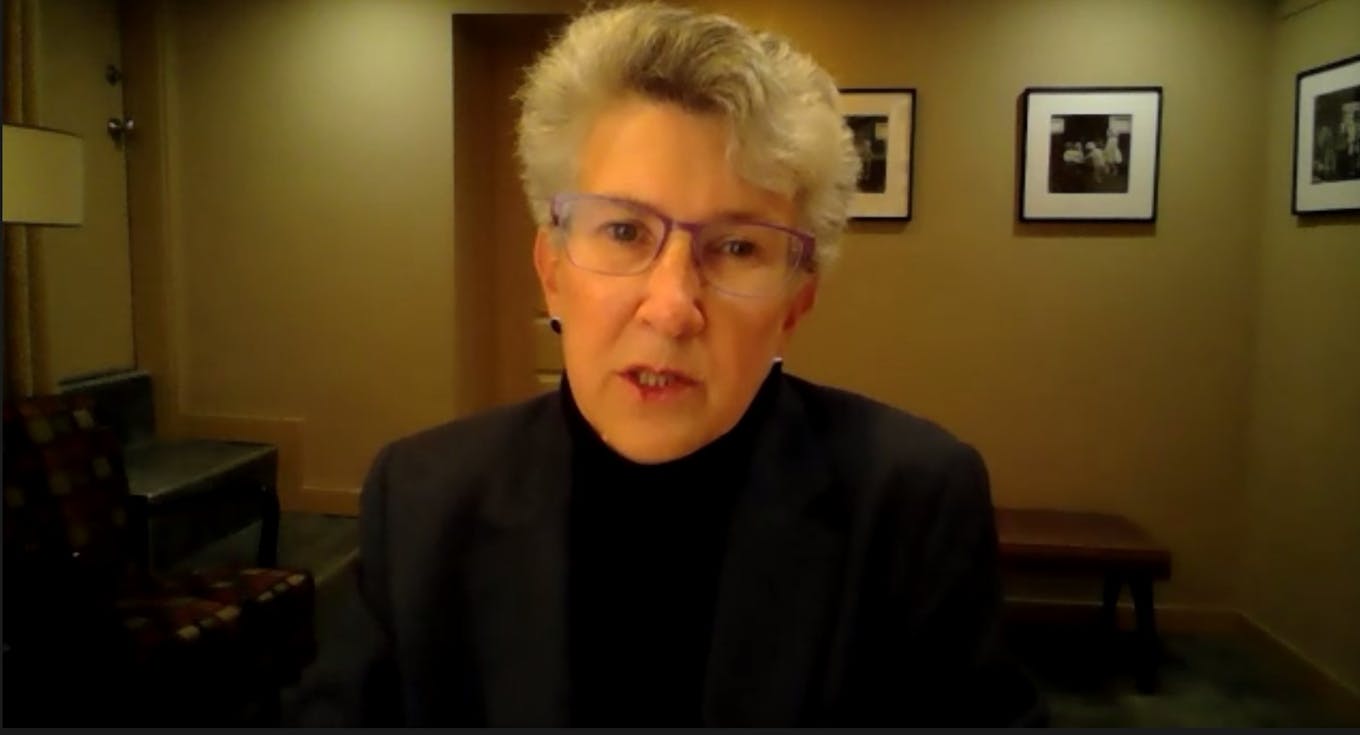The Sustainability Accounting Standards Board (SASB) and the International Integrated Reporting Council (IIRC) finalised their merger on Wednesday to form the Value Reporting Foundation in a bid to streamline corporate reporting systems and enhance legitimacy around sustainability disclosure standards.
“Businesses and investors have long asked for more clarity and simplicity in the corporate reporting landscape,” Janine Guillot, chief executive of Value Reporting Foundation said during a launch event in Asia on Thursday. “Our merger is a direct response to that call.”
Green funds are growing in popularity and in 2020, ESG (environmental, social and governance) investment more than doubled with investors pouring in a record US$51 billion. Together with pledges from corporates and financial institutions to stave off rising global temperatures through the divestment of fossil fuels, there is more pressure from international financial regulators to align standards and increase disclosure of climate risks under common reporting standards.

Value Reporting Foundation CEO Janine Guillot, 10 June 2021.
But the proliferation of competing reporting standards, rankings and metrics surrounding ESG funding are bewildering companies and investors. Current standards and rankings vary widely meaning that the quality of sustainable investments can be compromised.
A report by the International Organisation of Securities Commissions (IOSCO) in April 2020, found a lack of a common understanding of what is meant by sustainable investments and sustainability risks, highlighting the challenges of having a diverse range of sustainability standards and the lack of agreed globally-accepted definitions.
This risks confusion for regulators, firms and investors, and could aggravate the issues of “cherry picking” of frameworks and “greenwashing” the report said.
“Simplifying the ESG disclosure landscape, which both companies and investors decry as the ‘alphabet soup’, is complex but it isn’t impossible,” Guillot said. “The end result will be comparable, consistent and reliable information that enables more holistic decision-making by businesses and investors.”
Under the umbrella of the Value Reporting Foundation, they plan to support business and investor decision-making with three main resources: integrated thinking principles, the integrated reporting framework, and SASB standards, Guillot said.
The merger points to a “step towards greater consolidation” of the main global standard setters and a convergence of approaches to sustainability reporting, Thomas Milburn, Singapore director at Corporate Citizenship, a global consultancy told Eco-Business. “There’s a very compelling case, particularly for listed companies, and those that are trading in capital markets to consider these standards as key.”
SASB and the IIRC announced their merger last November after committing in September to working with other ESG standard-setters like the Global Reporting Initiative, which is the most widely-used framework, the Climate Disclosure Standards Board and the Carbon Disclosure Project to harmonise their different standards and frameworks.
“Integrated reporting is a key enabler ensuring business risks are clearly understood, and that there is comparable reporting,” Graeme Pitkethly, chief financial officer at consumer goods company Unilever said in a statement.
The foundation plans to work with the International Financial Reporting Standards (IFRS) Foundation as it prepares to launch an International Sustainability Standards Board (ISSB) as part of a technical working group at the United Nation’s COP26 climate summit in November.
Finance ministers of the G7, a club of big economies including Canada, France, Germany, Italy, Japan, the United Kingdom and the United States, endorsed the creation of the ISSB last Friday.
“By combining the tools, resources and relationships of SASB and IIRC, the Value Reporting Foundation will continue to advance progress towards a more coherent landscape and continue to support the important efforts of the IFRS Foundation,” Guillot said.
Questions remain over how a standardised global sustainability measurement and reporting framework will fit with other existing ratings systems, how many will adopt it and whether one standard can apply to all industries. The idea of standardised ESG reporting remains highly contested.
“The challenge will be how many companies will adopt it and even if those companies adopt it, how well will they actually apply those standards? And will they do it consistently? Will the users, the readers and investors find that information useful?” Milburn said.
Nevertheless, the pandemic has triggered a step-change in the search for common standards. “We’re seeing a lot of great progress on sustainability disclosure and integrated reporting, especially when it comes to the risks and opportunities around climate change,” former New York City mayor, Michael Bloomberg, founder of Boomberg and chair emeritus of the Value Reporting Foundation, said in a statement. “This merger is another important step forward towards a stronger, more resilient economy – and a brighter, safer future.”

















